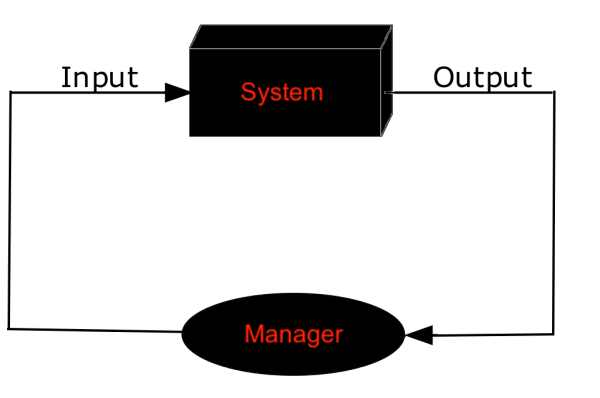The managed system more often than not appears as a black box to its upper management. It is not transparent. I do not quite understand how it works. All I have are the output signals of the very uneven quality. And that is all I can base my judgement and my decisions upon🧵 

This explains much of the perceived "irrationality" of top decision makers:
a) The system isn't transparent. It produces signals of uneven quality
b) Choose the presumably higher quality signals *you are able to process*
c) Base your decisions upon them
Hence "irrationality"
a) The system isn't transparent. It produces signals of uneven quality
b) Choose the presumably higher quality signals *you are able to process*
c) Base your decisions upon them
Hence "irrationality"

Reality is incomprehensible in all of its complexity (and we tend to very much exaggerate how well we do comprehend it). It is covered by the fog of war. And perhaps nothing else illustrates it so vividly as, well, the war 

Imagine you are a top decision maker in a low trust society. Your troops are fighting a war. How are the fighting? With what success? How efficiently? Well, honestly it may be difficult to say. It is a black box. It is more often than not untransparent for the upper management 

Many of the output signals you are getting are of low quality. This includes, for example, the "enemy casualties" which are usually unverifiable and therefore unreliable.
Paradoxically enough, *your own casualties* may serve as a far better performance metrics
Paradoxically enough, *your own casualties* may serve as a far better performance metrics

Your own casualties may serve as a good performance metrics under one particular condition:
*You have absolute numerical superiority over your enemy, both in manpower and in equipment*
Fortunately enough, most of the wars Russia has been fighting do meet it
*You have absolute numerical superiority over your enemy, both in manpower and in equipment*
Fortunately enough, most of the wars Russia has been fighting do meet it

If you have the absolute numerical superiority, you may assume the enemy should run out of resources first. Ergo, you will probably win the war, if your troops are *engaging* the enemy
Engagement = victory
And *your own casualties* serve as a verifiable indicator of engagement
Engagement = victory
And *your own casualties* serve as a verifiable indicator of engagement

Sufficiently high casualties = good metrics
You are engaging -> Winning
Too low casualties = bad metrics
You are dodging the fight -> Not winning at all
Months-long frontal assaults on the fortified positions make sense in this context. You are producing a very nice metrics
You are engaging -> Winning
Too low casualties = bad metrics
You are dodging the fight -> Not winning at all
Months-long frontal assaults on the fortified positions make sense in this context. You are producing a very nice metrics

The DPR militia's complaints are a great illustration of this logic of the high command
Too low casualties -> You are not fighting -> Unacceptable
Paradoxically enough, the system is optimised for producing higher rather than the lower casualty rate
t.me/wehearfromyani…
Too low casualties -> You are not fighting -> Unacceptable
Paradoxically enough, the system is optimised for producing higher rather than the lower casualty rate
t.me/wehearfromyani…

This is a nice post by a Donbass militiaman which explains the mechanism of the months-long "meat assaults". He doesn't even blame the leadership of the assaulting units as the low-casualty tactics would not be allowed by the upper command anyway
t.me/wehearfromyani…
t.me/wehearfromyani…

The "meat assaults" serve as a somewhat dramatic illustration for a more general rule. Those above cannot comprehend the system in all of its complexity. So they focus on a narrow range of output signals which they can:
a) verify
b) understand
a) verify
b) understand

As the verifiable and understandable signals are chosen as the key performance metrics, the whole performance of a system will be gradually optimised for producing these signals more than anything. Decisions of those below will be guided not so much by what is "objectively"...
... better do do (whatever it means), but rather by what can be verified and understood by the upper management. If a solution cannot be understood and appreciated by those above, it is probably not going be implemented however rational it may look "objectively" speaking
"Meat assaults" serve as an especially obvious illustration of a system optimised for producing good verifiable metrics for the upper management. In case of the military industrial development strategy, this pattern may be more subtle, but hardly less pronounced
The end 🧵
The end 🧵
• • •
Missing some Tweet in this thread? You can try to
force a refresh





